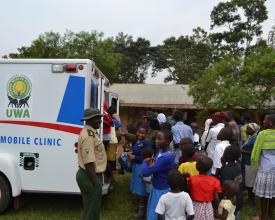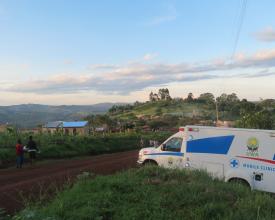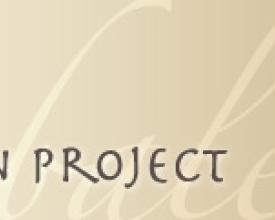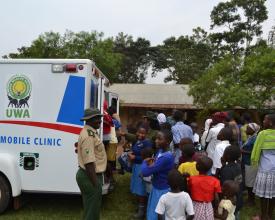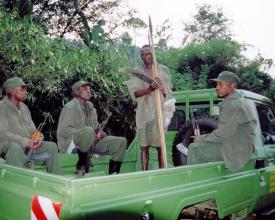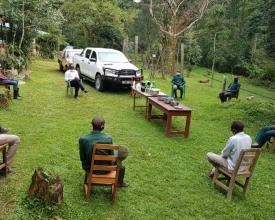
Mobile Clinic Partnerships for Human Health and Conservation
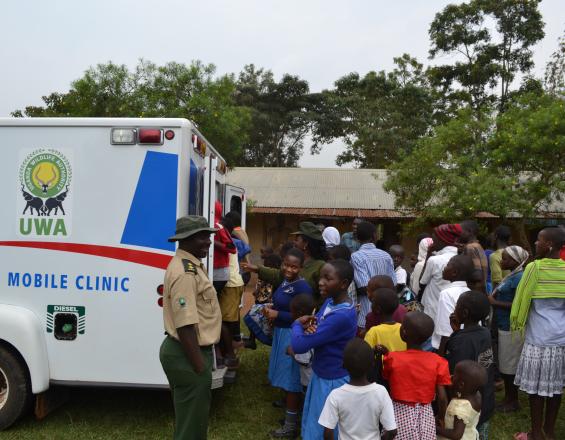
Both nature and humanity are facing unprecedented challenges. We developed a bold approach that unites health care, education, and conservation. In 2007, we established a mobile clinic to provide health services and deliver conservation messages around Kibale National Park, Uganda. Our approach is based on the fact that, in the tropics, most suffering is due to the simple lack of accessibility to health knowledge and services. In Uganda, 30% of all deaths among children are caused by malaria, that could be treated or prevented. These trends are most severe in remote regions which are also often home to protected areas for wildlife. This juxtaposition between humans and protected areas provided a unique opportunity for the partnership between conservation and health care. Our Mobile Clinic travels around the park, bringing basic health care, family planning, deworming, HIV/AIDS treatment and counselling, vaccinations, and health and conservation education to remote villagers around Kibale.
Context
Challenges addressed
Nature and humanity faces unprecedented environmental challenges in the coming years. Nowhere are these challenges greater than in Africa, the poorest and second most populous continent. Grappling with these challenges will require new ways of approaching conservation, a scaling up of effort, an enhanced integration of fields of inquiry, and, most importantly, the will to enact meaningful change. Providing a union between the provision of health care and conservation in an approach that can affordably reach many people, and help protect biodiversity. Saving the life of child suffering from malaria, when a family cannot afford the medicine builds strong bonds between parks and neighboring communities.
Location
Process
Summary of the process
The local people desperately need improved health care, the park needs to be protected from illeagal encroachment, and by forming partnerships we can illustrate that the park will work with the people to help them with their health needs, but in return it is important they do not harm the biodiversity in the park.
Building Blocks
Health Care is a Pressing Need That Can be Affordably Provided to Many Around Parks
In the case of tropical health, most suffering is NOT caused by a lack of effective drugs or technology, rather it is due to the simple but critical lack of accessibility to health knowledge and services. In Uganda alone, 30% of all deaths among children between the ages of 2 and 4 are caused by malaria, a disease that could be easily treated or prevented, and 26% of children under the age of 5 are malnourished. These trends are most severe in remote regions where health services and education are extremely limited. Remote areas are also often home to protected areas for wildlife. Through local clinics or mobile clinics, it is possible to provide critical health services to many people at a small cost per individual. The number of people receiving benefits are many times greater than other types of revenue sharing, such as ecotourism.
Enabling factors
The Uganda Wildlife Authority, manage national parks, and they have enabled our outreach by providing a ranger to talk to the communities whenever the mobile clinic is in actions. They have also provided the driver. The Ministry of Health has provided us up to 3 local nurses to accompany the mobile clinic. Furthermore, the Ministry provides many drugs for free, including medicine for HIV, deworming, and vaccinations. The vaccinations will be particularly important this coming year to beat back COVID.
Lesson learned
Through the hard work of a Ugandan student, we demonstrated that by providing health care through our mobile clinic, we can improve how the local people perceive the park - improving parks-people relationships. Long-term monitoring of wildlife populations show that this corresponds to increases in wildlife populations.
Bushmeat Hunting and Resource Extraction are a Constant Threat to Biodiversity
The bushmeat trade is a large industry that is decimating many wildlife populations, even those in protected areas. It is estimated that up to 4 million tonnes of bushmeat are extracted each year from Central Africa alone ( the weight of ~5.7 million cattle). For the people’s perspective the resources from parks allow them to feed their families and raise money to send children to school.
Enabling factors
We have been greatly aided by the Uganda Wildlife Authority that protects the part, monitors illegal encroachment and engages in revenue sharing and outreach to help local people. The mission statement of the Uganda Wildlife Authority is to “To conserve, economically develop and sustainably manage the wildlife and protected areas of Uganda in partnership with neighboring communities and other stakeholders for the benefit of the people of Uganda and the global community.”
Lesson learned
Through the hard work of a Ugandan Wildlife Authority, we have been able to analyze data on the poaching level and understand the economic pressures causing increased activities and which conservation actions are effective at decreasing these activities. We have learned that our joint efforts have led to forest recovery the growth of wildlife populations in the park
Conservation Gains Will Only Come through Partnerships
Conserving nature requires the involvement of many players, each having different goals, thus advances can only be made through partnerships. Here we have formed a very successful partnership between the provision of health care and conservation. This involves partnerships between the Uganda Wildlife Authority, the Ministry of Health, local government, Makerere University, Wilson Center, George Washington University, McGill University, Wildlife Conservation Society, and international donors.
Enabling factors
Colin Chapman has worked in Uganda for 32+ years, trained 58 advanced degree students (many are now in position of authority in Uganda), worked with the Uganda Wildlife Authority since its inception, and is well respected by the local community.
Lesson learned
Forming meaningful partnerships, where the goals of all partners can be met, is the only way to produce meaningful conservation advances.
Impacts
The Mobile Health Clinic fosters good will, improves park-people relationships, and hopefully decreases the likelihood that local people will hunt bushmeat, the source of many devastating viruses like COVID-19 and HIV/AIDS. If a villager’s child is suffering from life threatening malaria, but the family does not have the money to travel to the distant town and pay for the testing and medicine and we can provide free treatment that saves the child’s life, it goes a very long way to promote positive park-people relations. Each year, the mobile clinic provides medical treatment to 16,000 people and outreach to about 200,000 (numbers include multiple visits).
Beneficiaries
Forging partnerships between the provision of health services and conservation is a win-win scenario for both humanity and nature. Each year, our mobile clinic provides medical treatment to 16,000 people and outreach to 200,000 and improves park relations.
Sustainable Development Goals
Story
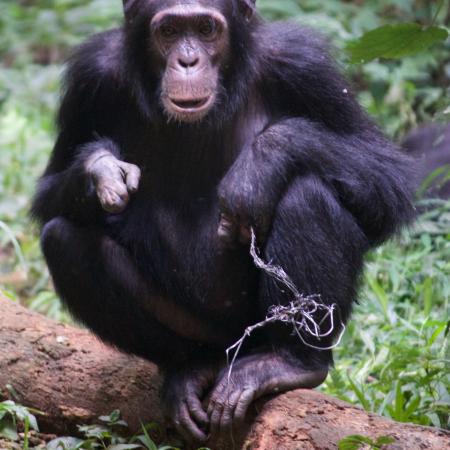
In 1989, Colin Chapman went to Kibale National Park in Uganda as a young conservation scientists and post-doc from Harvard and started a wonderful journey with the people and wildlife that lasts to this day. He found the people extremely welcoming, warm, and very eager to engage in conservation. He wanted to help the people and protect nature, but their goals opposed one another. Colin asked searched for a win-win solution. The answer came as the result of a sad event and a happy one. People in the remote villages did not have vehicles, so Colin was the ambulance. One week, he drove a man with malaria to hospital, brought his body back for burial, and started to take a woman giving birth only to have the baby be born in the back seat. This made Colin realize that with tropical health, most suffering is not caused by a lack of effective drugs or technology, it is due to the lack of accessibility to health knowledge and services. In Uganda, 30% of all deaths among children are caused by malaria, a disease that can be easily treated or prevented. These trends are most severe in remote regions where health services are limited. Remote areas are also often home to parks. This juxtaposition provides a wonderful opportunity to form partnerships between conservation and health care. With the help of local villagers and a Ugandan professor, they built a clinic and established a mobile clinic. Our Mobile Clinic travels around the park, bringing basic health care, family planning, deworming, HIV treatment, vaccinations, health and conservation education and operates as an early warning system for emerging infectious diseases. We also let people air their grievances concerning the park and seek solutions with park authorities. This improves park-people relationships and decreases poaching. Each year, we provide medical treatment to 16,000 people and outreach to about 200,000. It was through these efforts that Colin received one of Canada’s most prestigious humanitarian awards from the Velan Foundation.
The park is now well protected and the local community is thriving, their health has improved, people’s perception of the park has improved, and many earn money as a result of the park. Overall, the partnership forged between health care and conservation is a very successful win-win situation for people and nature. The next challenge is to scale this partnership up to more parks around the world.
